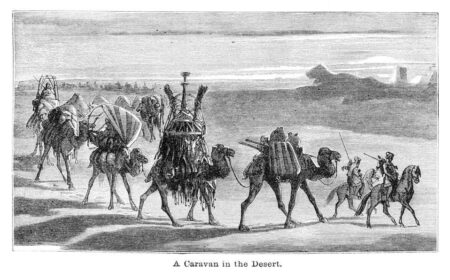Somdutta Singh, founder and CEO of Assiduus Global, is a serial entrepreneur, investor and bestselling author.
Starting a business is a grand adventure. It’s a thrilling leap into the unknown, fueled by a mix of excitement, determination and a touch of fear. From crafting the initial idea to navigating the daily challenges of running a startup, every moment is a testament to your passion and resilience. As your business grows, however, the lines between founder and CEO begin to blur.
Founder Vs. CEO: What’s The Difference?
When I first launched my startup, I was a founder through and through. I had the idea, the passion and the drive to turn that vision into reality. Every day was a whirlwind of brainstorming sessions, problem-solving and pushing my idea forward. But as the company grew, I realized that the role of a CEO was emerging alongside my role as founder.
According to a study by the Harvard Business Review, 4 out of 5 founders struggle with the shift from hands-on creation to strategic leadership as their company’s scale. Unlike the founder, who is all about creating something from scratch, the CEO must lead the company as it scales. This role is less about the initial spark and more about strategy, leadership and making those tough calls that guide the company in the right direction.
The Founder
Think of the founder as the architect of the idea. They’re the ones who take that initial leap of faith to start something new. Founders are often deeply involved in product or service development, and their passion drives the early stages of the company.
The CEO
The CEO, on the other hand, is the leader who ensures that the company operates smoothly and efficiently as it grows. While the founder is the spark, the CEO is the engine. They focus on big-picture strategy, managing teams, securing funding and building relationships with stakeholders.
Traversing The Journey From A Founder To A CEO
Making the leap from founder to CEO is like navigating a crossroads in your entrepreneurial journey. At first, you’re deeply immersed in every detail, from late-night brainstorming to hands-on problem-solving. But as your company starts to grow, so do the challenges—and this is where the evolution from founder to CEO comes into play.
From Visionary To Strategist
The transition from founder to CEO is not just a shift in job title but a profound evolution in leadership style and responsibilities. A founder’s role is deeply rooted in passion and hands-on involvement. They’re the driving force behind ideas and the catalyst for every breakthrough. However, as the company grows, this role must evolve from being a visionary who executes to a strategist who leads.
This involves setting a clear vision for the future, navigating market trends and making high-stakes decisions that shape the company’s trajectory. The hands-on approach of a founder—while instrumental in the early stages—gives way to a broader, more strategic perspective. The CEO must now balance immediate needs with future goals, ensuring the company’s growth aligns with its long-term vision.
Delegation As A Core Competency
One of the biggest changes in this evolution is learning to delegate effectively. Founders who are used to handling everything themselves must now trust their team with critical responsibilities. Delegation isn’t as much about passing off tasks as it is about empowering others and fostering a collaborative environment. Then there’s the aspect of building a strong leadership team. This involves setting clear expectations and providing support while allowing autonomy. Effective delegation helps scale the business and ensures that team members feel valued and motivated.
Navigating Organizational Dynamics
As companies grow, their organizational structures become more complex. Founders must adapt to managing a larger, more diverse team and master organizational dynamics. Skills in management, conflict resolution and communication become crucial. CEOs must be adept at aligning various departments and teams with the company’s overall strategy.
They need to address internal challenges, foster a positive work culture and ensure that all employees are working towards common goals. Navigating these dynamics requires a nuanced understanding of human resources and organizational behavior, areas that may not have been as critical in the early days of the startup.
Adapting To New Leadership Challenges
Leadership skills are tested as CEOs manage larger teams, handle investor relations and represent the company externally. Adaptability is key. CEOs must be resilient, forward-thinking and open to continuous learning. Staying informed about industry trends, seeking mentorship and adjusting strategies as needed are all part of the role.
In closing, the evolution from founder to CEO is about leveraging that initial spark of passion and vision to drive a larger, more complex organization toward sustained success. It’s a journey that blends strategic foresight with leadership excellence, marking a transition from a hands-on doer to a strategic leader. This transformation isn’t just about changing roles; it’s about growing into a leader who can inspire, innovate and tackle the challenges of a rapidly evolving business landscape.
As founders make the shift to CEOs, they unlock new potential for their companies, setting the stage for continued growth and long-term impact. This journey may be challenging, but it’s also profoundly rewarding. It’s in navigating this transformation that a founder truly becomes a CEO.
Forbes Business Council is the foremost growth and networking organization for business owners and leaders. Do I qualify?
Read the full article here











